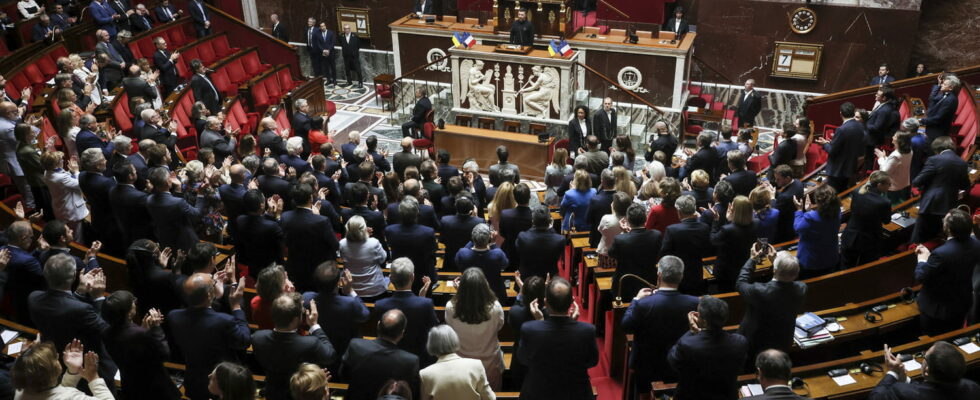While Emmanuel Macron declared the dissolution of the National Assembly, the deputies benefit from a very specific regime.
A shock wave that does not penalize everyone, especially not those first affected. Emmanuel Macron has decided to dissolve the National Assembly and calls on the French to return to the polls, on June 30 and July 7, to elect their deputies. The 577 seats are back in play and the outcome of this election is more than uncertain, with the possible push of the National Rally to the Bourbon Palace.
For all elected officials, it is therefore forced unemployment until the results of the 2n/a round of legislative elections. No more text to work on, therefore no more compensation received? On paper, this would make sense. But the reality is quite different. An exceptional regime for their function and favorable to say the least.
Usually, when there is an involuntary loss of employment, compensation is received by the employee and unemployment is then paid. For MPs, it’s different, but the rule is very clear. The budgetary, accounting and financial regulations of the National Assembly anticipate the situation of a dissolution and the consequences for elected officials. Everyone can sleep soundly: their bank account will continue to be funded as usual.

The text (article 42) provides that the compensation remains paid “until the end of the month following that during which the decree of dissolution was issued.” In this specific case, until the end of July. Thus, in June, the 577 deputies will receive their full remuneration, as if the National Assembly was functioning normally. In July, deputies who have not been re-elected or who have not stood for re-election will still receive their allowances, before going under the unemployment system in August (a special and advantageous regime is planned for former deputies).
For the 577 elected officials who sat until recently, 7,637.39 euros gross will continue to arrive in June, regardless of the fact that the Assembly no longer legislates, but also in July, regardless of the outcome of the upcoming election.
Furthermore, four “special” deputies will receive much more in June and part of the month of July. The regulation, in its article 47, provides that the president and the quaestors of the National Assembly continue to receive, in addition, the allowances special conditions linked to their functions. The reason is simple: since the official announcement of the dissolution, they are the ones responsible for the general administration of the parliamentary chamber.
Yaël Braun-Pivet, president, Eric Woerth, Eric Ciotti and Brigitte Klinkert, all three quaestors, will therefore continue to receive, in addition, 7,698.50 euros gross per month for the first and 5,300.36 euros gross per month for the three others. In June, all of these special allowances will be paid while in July they will be paid in proportion to the number of days in these positions, if they are not reappointed to these positions.
If the announcement of the dissolution could cause an unprecedented political upheaval in France, financially, it will have no immediate consequences for those who composed, until Sunday evening, the National Assembly.
